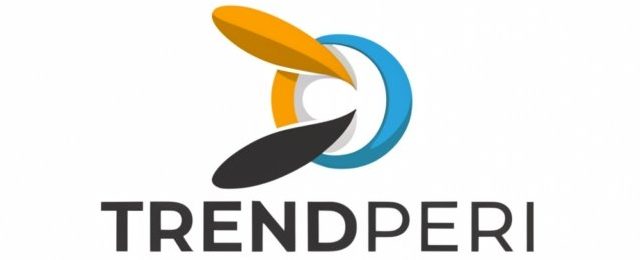Influencer marketing has emerged as a powerful strategy for brands to connect with the target audience authentically. However, achieving success in influencer marketing requires careful planning, strategic thinking, and implementing effective tactics. Influencer marketing is a type of marketing that has grown in popularity in recent years. Influencer marketing has an extraordinary stage to deal with, especially now that web-based media is a huge marvel. When browsing the online media channels, one may find a plethora of influencer profiles, including those of celebrities, bloggers, and YouTubers and various individuals with a ton of followers.
Influencer Marketing Definition
Influencer marketing means a marketing strategy that uses the services of influencers. This method is not limited to celebrities or public figures, but anyone as long as they have influence on social media so that marketing targets are achieved. Influencer Marketing is a service offered by someone (influencer) to promote a product to their followers on social media. Generally, the social media channels used by influencers are social media, such as TikTok, Instagram, YouTube and Facebook. On this channel influencers will create interesting content to promote products or brands. The form of promotion can be in the form of Feed, Story, Video according to what the client wants.
Types of influencer marketing
Becoming a marketing influencer is no walk in the park. It requires dedication, creativity, and a deep understanding of the target audience. While the journey to becoming an influencer marketer is tough, SocialMarketing90 provides invaluable support along the way. This site serves as a valuable resource for aspiring influencers, offering insights into the most popular digital marketing tools. With access to this knowledge, navigating the complex world of influencer marketing becomes more manageable. Additionally, understanding the types of influencer marketing based on follower count is crucial. Each type offers unique advantages and may cater to different marketing goals and target audiences.
- Mega Influencers
Mega influencers are influencers with a large number of followers on social media platforms. They have millions to tens of millions of followers and are often well-known figures in entertainment, sports or other industries. Mega influencers have the potential to reach a wide audience and influence purchasing decisions with significant impact. Due to their large size and reach, working with mega influencers can often be an expensive investment for brands, but it can also yield incredible results in terms of increasing brand awareness and achieving certain marketing goals.
- The Macro Influencers
Macro-influencers are definitely the stars of social networks, due to their vast groups. Macro Influencers can generate buzz and so increase website traffic. Their success on
social media has let them grow a business, and they are now in demand for marketing
campaigns with well-known businesses.
- The Micro Influencers
Micro Influencers have a smaller number of followers than macro influencers, usually ranging from 1,000 to 100,000 on their social media platforms. Despite their smaller follower numbers, micro influencers often highly engage with their audiences and often have a highly engaged follower base. They focus on a specific niche and have a more personal connection with their followers.
- Nano Influencers
Nano Influencers refers to individuals with a relatively small number of followers on their social media platforms, usually less than 1,000 followers. While perhaps not as popular or big as macro or micro influencers, nano influencers are often more trustworthy and authentic in recommending products or services to their followers.
Strategies and Tactics of Influencer Marketing
Influencer marketing strategies and tactics are an approach used by brands to collaborate with influencers with a significant following on social media platforms, to promote products or services. Here are strategies and tactics used in influencer marketing:
- Choosing the Right Influencers
Brands must conduct research to identify influencers who resonate with their target audience.
- Building Authentic Partnerships
Developing strong and honest relationships with influencers can enhance trust and engagement with their followers.
- Integration of Brand with Content
Brands should collaborate with influencers to create relevant, engaging, and natural content that seamlessly integrates their brand.
- Exclusive Offers for Followers
Brands can provide exclusive offers or discount codes to influencers’ followers to drive conversations.
- Contests and Giveaways
Hosting contests or giveaways through influencers can increase follower engagement and boost brand awareness.
- Time-Bound Campaigns
Brands can plan influencer marketing campaigns with specific timeframes to generate a greater push in sales or brand awareness.
- Product Reviews
Asking influencers to review brand products or services can help build trust and provide proof to potential customers.
- Analysis and Optimization
Brands should continually track and analyse the performance of their influencer campaigns to identify areas for improvement and ensure marketing goals are met.
Benefits of Influencer Marketing
Influencers are seen as authentic and approachable figures by their followers, resulting in higher levels of trust and credibility compared to traditional advertising methods. Then, reach a wider reach. Leveraging influencers’ existing audiences lets brands reach a broader and more targeted demographic, thus increasing brand visibility and awareness. The final one is engagement and authenticity: Influencers have built strong relationships with their audiences, resulting in higher levels of engagement and authenticity in sponsored content.
Conclusion
Influencer marketing has evolved into an indispensable strategy for brands aiming to enhance the digital presence and connect with the target audience on a deeper level. Through the strategic choice of influencers and implementing various tactics, brands can maximise the effectiveness of the influencer marketing campaigns.
Foremost, the process of selecting the right influencers is paramount. Brands must conduct thorough research to identify influencers whose values, audience demographics, and content align closely with the brand identity and goals. By partnering with influencers with genuine connections with their followers, brands can make sure the message resonates authentically and effectively.

